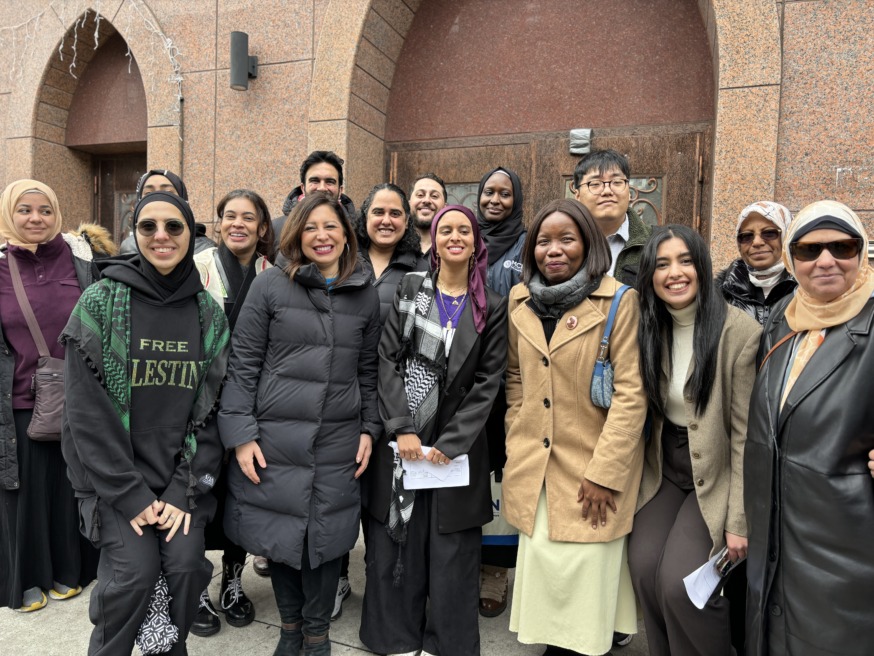
Photo provided by the office of Assemblymember González-Rojas
Apr. 2, 2024 By Czarinna Andres
State Sen. Mike Gianaris and Assemblymember Jessica González-Rojas joined a number of local advocacy groups to call for support of their proposed legislation that disaggregates Middle Eastern and North African populations from white demographics in state-collected data.
Gianaris and González-Rojas have sponsored the MENA Bill, which aims to give Middle Eastern and North African communities a stronger voice in state-collected data.
They joined a coalition of local advocacy groups at the Al-Iman Mosque at 24-30 Steinway St. in Astoria Monday afternoon to mark the beginning of Arab American Heritage Month and to call for support for the MENA Bill.
The coalition advocating for the legislation includes the New York Muslim Organizing Collective, the Women’s Empowerment Coalition, the Armenian American Action Network, Malikah and several others.
If passed, the MENA Bill would require every state agency, board, department and commission that collects demographic data to disaggregate Middle Eastern or North African (MENA) populations from white demographics.
Gianaris and González-Rojas argue that MENA communities are underserved across New York State, experiencing higher rates of language access needs, housing insecurity, poverty and health disparities.
They added that businesses and organizations who serve MENA communities can also struggle to obtain equity-based aid because the communities they serve are incorrectly classified as white.
Roughly 280,000 members of the MENA community live in New York State, according to the latest Census data, but Gianaris and González-Rojas argue that the actual figure is likely over 500,000.
“For too long Middle Eastern and North African (MENA) communities have been made invisible by our federal and state governments’ lack of data collection or lack of disaggregation,” González-Rojas said in a statement. “By not including categories for these various communities in the Census and in our state institutions’ data, the needs of our neighbors have been unaccounted for and ignored.”
“We urge Governor Hochul and the legislature to pass our bill to ensure that these communities are accounted for and better understood.” Gianaris said, while emphasizing that classifying MENA communities as white can have “real-world impacts” on the services and resources that those communities receive.
“It should be obvious that people from the Middle East or North Africa are not white, yet that is how our laws define them. Our proposal would give better representation and a more powerful voice to so many,” Gianaris said in a statement.
Meanwhile, Rana Abdelhamid, Executive Director of Malikah, said it is important to disaggregate MENA communities from white demographics to ensure that issues such as food insecurity and poverty are noticed.
“When our issues aren’t counted, it’s hard to get help and make things better. We need to make sure our experiences are included in data so we can get the support we need and make our community stronger,” Abdelhamid said.
Last month, the Biden Administration approved proposals to include “Middle Eastern or North African” and “Hispanic or Latino” as a response to questions about race and ethnicity on future federal government forms.
New federal government forms, including Census documents, will now include at least seven “race and/or ethnicity” categories.
